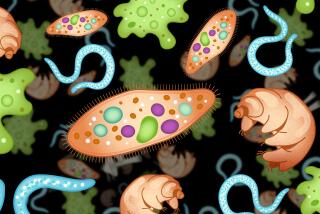Daum: Memed, and proud of it

Say what you will about the latest Internet video sensation — in which someone lampoons one group of humans or another based on certain conversational proclivities — but if nothing else, we can credit it with bringing mainstream awareness to the word “meme.” That’s the term coined by Richard Dawkins for the way evolutionary principles can be used to explain how cultural ideas take hold. It’s now basically turned into a fancy way of talking about things that are popular on the Internet. This includes cats with funny captions inserted below them.
The occasion for the sudden ubiquity of “meme” is the sudden ubiquity of the phrasal template “stuff X says” (well, it’s not actually “stuff” but a different four-letter word that cannot be printed in this space). Though the phrase can be traced back at least as far as the 2009 Twitter-feed-turned-book-turned-comedy-TV-series about a guy and his ranting father, this latest iteration began last spring when the Toronto-based filmmaker Graydon Sheppard and his partner started a Twitter account devoted to the risible idioms of a certain kind of female speech. The feed was so popular that in December the pair released three videos featuring Sheppard wearing a wig and jewelry and modulating his voice into Valley-girlish uptalk.
“Could you pass me that blanket?” he asks. “Do you know anything about computers?” “Could you go into my purse?” “I can’t believe I ate all that.”
The videos went viral and immediately prompted spinoffs covering a vast terrain of gender and social stereotypes: Stuff Guys Say, Stuff Black Guys Say, Stuff Asians Say, Stuff Hipsters Say. The meme has ventured into post-secondary education (Stuff Med Students/Law Students/Art Students/English Grad Students Say) and extended its reach to quotidian hallmarks of American cities: New Yorkers apparently spend a lot of time waiting for the subway, and people in D.C. like cupcakes. Angelenos arrange doggie play dates, rhapsodize about kale and say, “My therapist says I’m eating better.”
Naturally, there’s been hand-wringing about whether this meme, particularly as it pertains to women or gays or racial minorities, propagates offensive stereotypes or in fact offers a critique of those stereotypes. I won’t try to tease that out here because it’s ultimately dependent on your sense of humor, so there is no single answer.
However, what is worth thinking about is what we’re getting out of this meme, lo these many weeks into it. Though the novelty wore off sometime in mid-January and last week the media talked mostly about how they were done talking about it, the videos are still pouring in. By one report, there are now more than 1,000.
That’s not just because, thanks largely to Justin Bieber, YouTube is something of a do-it-yourself version of “American Idol.” Nor is it, as a cursory glance might suggest, a manifestation of our “divided culture” (white versus black, gay versus straight, cupcakes versus kale.) Instead, this meme reflects a nation that’s not so much divided into two but split into a constellation of subcultures. After all, look how specific the categories get. There’s Stuff Gay Republicans Say and Stuff White Gays Say to Black Gays. There’s Stuff Sri Lankan Moms Say and Stuff Bassoonists Say.
The list goes on and on. And that’s just the point. There are limitless categories out there, labels for even the most specialized of special interests. In the wake of online social networking, not to mention reality television that focuses on some remarkably niche pursuits (ice road trucking, storage locker auctions), groups that once would have been all but invisible have enough of a cultural toehold to establish a currency for their own trappings and affectations — in other words, the raw materials for their own stereotypes. The result is that “being labeled” isn’t always a bad thing.
Some labels are still reductive, offensive and unacceptably racist, bigoted or homophobic. But in a world where Sri Lankan moms can occupy the same cultural space as flaky, entitled white girls, being labeled can have less to do with being put in a box than belonging to a pack. It suggests we’ve found our community and are proud to wear its colors. And if certain stereotypes are associated with that community, well, you can always make a video about them.
Meanwhile, bet you someone out there is busy making Stuff Richard Dawkins Says. First on the list: “[Expletive.] I should have trademarked the word ‘meme.’ ”
More to Read
A cure for the common opinion
Get thought-provoking perspectives with our weekly newsletter.
You may occasionally receive promotional content from the Los Angeles Times.







